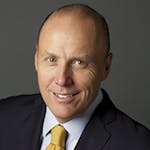The kids were lined up three rows deep in 115-degree heat when I arrived yesterday in Bandouki, an isolated village in northern Cameroon. But their mothers, and older sisters in some cases, knew that vaccination day was worth the wait.
Among the crowd was a young boy named Suleiman, only a toddler, who waited patiently with his brothers and sisters. There was no way he knew that the two drops of polio vaccine I put in his mouth could save him from a lifetime of debilitation, but his mother – and the village elders who supported the campaign – understood just how vitally important the vaccine is to him and the hundreds of other kids in the village.
 Children waiting in line to get vaccinated in Bandouki, Cameroon on April 30th, 2013
Children waiting in line to get vaccinated in Bandouki, Cameroon on April 30th, 2013
To spread the word about vaccination day, the village leadership, with support from UNICEF, dispatched more than a dozen health outreach workers to go door-to-door. Posters weren’t enough: Face-to-face interactions were essential to convince as many families as possible to come out and get their children immunized.
Of course, the polio vaccine did not appear in Bandouki yesterday out of thin air. Instead, more than a year ago, UNICEF and the Cameroonian government worked as a team to determine how much would be needed in the northern region, and exactly when it should be delivered – a critical step considering it, like most vaccines, must be kept refrigerated every step of the way.
Thanks to the leadership of UNICEF and the UN’s World Health Organization, similar success stories are playing out in remote villages across the world. The U.S. government understands just how critical it is to reach children like Suleiman, who otherwise would not have access to these often life-saving vaccines, and accordingly plays a leadership role in both institutions. In fact, a former U.S. National Security Advisor, Tony Lake, has proved to be an exceptional Executive Director for UNICEF – just another example of what we can accomplish when we work hand-in-hand with the UN.
And the funding behind this global campaign is equally as important. It’s made possible by people and organizations from around the world – from the UN Foundation’s Shot@Life supporters, who chip in money and ask their members of Congress to support strong federal funding, to groups like the Bill and Melinda Gates Foundation, which just pledged $1.8 billion over the next five years to the cause, to Rotary International’s millions-strong volunteer force.
Clearly, the two drops of polio vaccine that ended up in Suleiman’s mouth came from a long chain of events that began far outside his remote village in northern Cameroon. But for this toddler, those two drops are just the beginning of his shot at a healthy, productive life.



 View All Blog Posts
View All Blog Posts